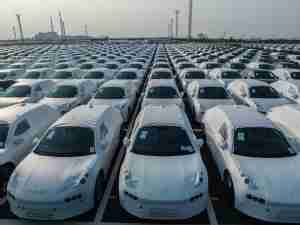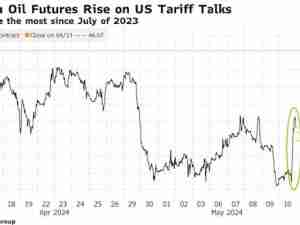U.S. Takes First Step Toward Revising South Korea Trade Deal
By: Andrew Mayeda and Kanga Kong | Jul 12 2017 at 09:41 PM | International Trade
President Donald Trump’s administration notified South Korea that the U.S. wants to revise the trade deal between the two nations, setting the stage for talks to begin within a month.
U.S. Trade Representative Robert Lighthizer requested a special session between the countries to discuss possible “amendments and modifications,” he said in a letter on Wednesday to South Korean Trade Minister Joo Hyung-hwan. South Korea’s Trade Ministry said in a statement it will send an official to the U.S. soon to discuss the date and agenda of a meeting.
Still, the ministry also said it has no obligation to respond to a U.S. request to amend the trade pact. Under the deal, both sides need to agree in order for talks to be held on altering it, the ministry said, adding that an initial step should be joint research into the U.S. claims about the impact of the pact on trade.
The talks would be an opportunity to “resolve several problems regarding market access in Korea for U.S. exports, and, most importantly, address our significant trade imbalance,” Lighthizer said, adding that the accord requires the special session to occur within 30 days. The U.S. has “real concerns” about the trade deficit with South Korea, he said.
The pact has not been revised since it came into effect in 2012. Updating trade deals in itself is not unusual—countries often do so to take account of changes to their economies, including things like e-commerce. But the U.S. has moved quickly since Donald Trump took office and signaled a more protectionist stance, including pulling the U.S. out of a 12-nation Pacific trade deal before it ratified the agreement.
North Korea Factor
The U.S. push to tweak the South Korea deal—known as KORUS—suggests a softer approach compared to its plan for a full renegotiation of the North American Free Trade Agreement. Trump needs Seoul onside to help rein in North Korea over its weapons programs, especially after Kim Jong Un’s recent first successful test-firing of an intercontinental ballistic missile.
Still, the talks will probably focus on the thorny issue of autos and prove tricky for new President Moon Jae-in. And they may be viewed with concern by South Korea’s neighbor Japan, which has also found itself in Trump’s cross-hairs for trade imbalances.
Joo is only staying in the ministerial seat while Moon seeks to get his nominee —energy engineering professor Paik Un-gyu—approved for the post. Moon has also sought the green light from parliament to bring the trade minister role back under the industry ministry umbrella, but is struggling without a majority in the legislature.
Ministerial Wait
“The Moon’s government restructure plan hasn’t been approved by the parliament and we don’t have Lighthizer’s counterpart yet, so we want the U.S. to consider this and hold the meeting when we have the new trade minister,” Yeo Han-koo, director-general for trade policy at the trade ministry, said by phone on Thursday.
“If the U.S. has concerns on the trade deficit or trade barriers, the two countries could conduct joint research to see if there’s any other solutions other than revision of the deal to resolve the concerns,” Yeo said.
South Korea is the U.S.’s sixth-largest trading partner, while the U.S. is South Korea’s second-largest trading partner after China. The U.S. had a $17.6 billion trade gap with South Korea last year, wider than $7.7 billion in 2012.
Trump has called KORUS a “horrible” deal. After meeting Moon at the White House in late June, Trump said South Korea should give U.S. automakers a “fair shake” to sell more cars there.
Moon didn’t directly address Trump’s complaints about trade in his public comments in Washington. But in a statement on the presidential office website, policy adviser Jang Ha-sung said Moon emphasized in his talks with Trump that the deal is a reciprocal one.
Auto Exports
South Korea argues that automobiles are a small fraction of total exports to America. The country sent 964,432 vehicles there in 2016, down 9.5 percent from the previous year, according to the Korea Automobile Manufacturers Association. Imports of U.S. cars rose 22 percent to 60,099 units, it said.
As part of its efforts to avoid the manipulator label and a major renegotiation of its trade deal, South Korea has announced plans to import more energy products from the U.S., while encouraging its companies to invest more in America.
USTR officials contacted lawmakers Tuesday to indicate the administration plans to approach South Korea soon to start the talks, said two people with knowledge of the matter who asked not to be identified because the discussions aren’t public.
Lighthizer will likely seek changes to the deal that don’t require the administration to seek so-called fast-track authority from Congress, said one of the people. Under that process, the administration consults with lawmakers on its renegotiation objectives, allowing it to seek a simple yes-or-no vote from Congress.








